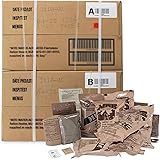You know, self-reliance is such an empowering concept, but when you’re working with limited resources, it can feel a bit daunting. I’ve been there, and let me tell you, it doesn’t mean you can’t practice self-reliance. Instead, it’s about using what you have in clever ways to become more independent. Here, I’ll share five key areas that I found helpful on my journey to being more self-reliant, even with minimal resources. Let’s dive right in!
1. Resourcefulness in Skills and Knowledge
Identifying and Adapting Your Skills
First off, take stock of what skills you already have. It’s kind of like a treasure hunt; you might be surprised by what you discover. Can you cook? Fix simple things around your house? All of these are a great starting point. Embrace the learning process by trying to adapt what you already know to apply it to new situations. For example, if you can boil water, you can start experimenting with different recipes.
Next, leverage online resources. I’m talking about YouTube videos, online courses, and really just about anything available on the internet. There’s a world of knowledge out there that can help you learn new skills without ever breaking the bank. I used to watch tutorial videos for basic car repairs, and it felt amazing to fix my own vehicle!
Lastly, don’t underestimate the power of community. Ask friends and family for help or tips. Sometimes, the person next door might know a thing or two about gardening or DIY projects that could save you time and money. I often trade skills with friends; it’s like a barter system that keeps on giving.
2. Creating a Sustainable Home Environment
Simple Food Production
Food is a critical area where self-reliance can thrive. Even if you don’t have a giant backyard, starting a small herb garden can be a game changer. Just a windowsill with some herbs like basil and mint can elevate your cooking. I started this way and was thrilled watching those little sprouts grow!
On top of that, consider learning about preservation methods. Canning is a great way to store surplus ingredients, extending their life and giving you something to enjoy later. Trust me, nothing feels better than opening up a jar of home-canned tomatoes in the middle of winter.
Lastly, explore local foraging. This is like a scavenger hunt! Depending on where you live, you may be able to find wild berries, mushrooms, or greens—free food! Just be cautious and do your homework to identify what’s safe to eat.
3. Financial Independence on a Budget
Understanding Your Financial Situation
Being financially independent is crucial, but when you’re on a tight budget, it can feel impossible. Start by tracking your expenses. Yup, grab a notebook or use a budgeting app to see exactly where your money is going. I was shocked to see how much I was spending on takeout!
== > What if ... Get a FREE Subscription to PREPARE
Learn to create a basic budget. It doesn’t have to be complicated; just outline your income vs. your essential expenses. Knowing what you have available helps in making conscious spending decisions—trust me, it feels good to take control!
Lastly, explore alternative sources of income. Whether it’s side gigs or selling items you no longer need, diversifying how you make money can give you more breathing room. I picked up freelance work online, and every little bit added a cushion for my budget.
4. Building Connections and Community
The Power of Networking
Sometimes you can’t do it all by yourself, and that’s okay! Building a supportive community is essential. Start by getting involved in local groups or social media communities with similar interests—whether it’s gardening, DIY, or anything else that sparks your passion.
Attend workshops or community events. You might pick up new skills or at least meet someone with the knowledge you’re after. I once attended a community garden workshop, and not only did I learn a lot, but I also made some fantastic friends.
Lastly, don’t underestimate online forums or groups. They can be a treasure trove for shared tips and experiences. It’s comforting to know there are like-minded folks out there who are going through similar journeys.
5. Mental Resilience and Adaptability
Embracing Change
Life’s unpredictable, and practicing self-reliance means being ready to roll with the punches. When things don’t go as planned, try to keep a positive mindset. Embracing change can lead to unexpected opportunities, and the more resilient you become, the easier it’ll be to navigate those bumps in the road.
Set realistic goals for yourself. Small, achievable targets can boost your confidence and make it easier to keep moving forward. I started with small tasks and celebrated each accomplishment, and it sparked a sense of ongoing motivation.
Finally, practice self-care. This sounds simple, but it’s so important. Whether you meditate, exercise, or just take time to relax with a good book, maintaining your mental health is key to staying resilient. Trust me, you can’t pour from an empty cup!
Frequently Asked Questions
1. Can I truly be self-reliant even if I have no money?
Absolutely! Self-reliance isn’t solely about finances; it’s about using what you have. Focus on skills, such as learning to grow your food or trading services with others in your community.
2. What are some low-cost methods for food production?
You can start small! Grow herbs in pots or containers, start a community garden with neighbors, or learn about foraging for wild edibles in your area. Every little bit helps!
3. How can I improve my budget management skills?
Begin by tracking your expenses to understand your spending patterns. Utilize budgeting apps or simple spreadsheets to categorize your needs versus wants and stick to your budget.
4. How can community connections help with self-reliance?
Connecting with your community helps build a support network where you can share resources, skills, and knowledge. Together, you can help each other become more self-sufficient.
5. What should I do when I feel overwhelmed?
It’s important to acknowledge your feelings of overwhelm. Take a step back, breathe, and prioritize your tasks. Break big goals into smaller, manageable steps, and remember to practice self-care.






